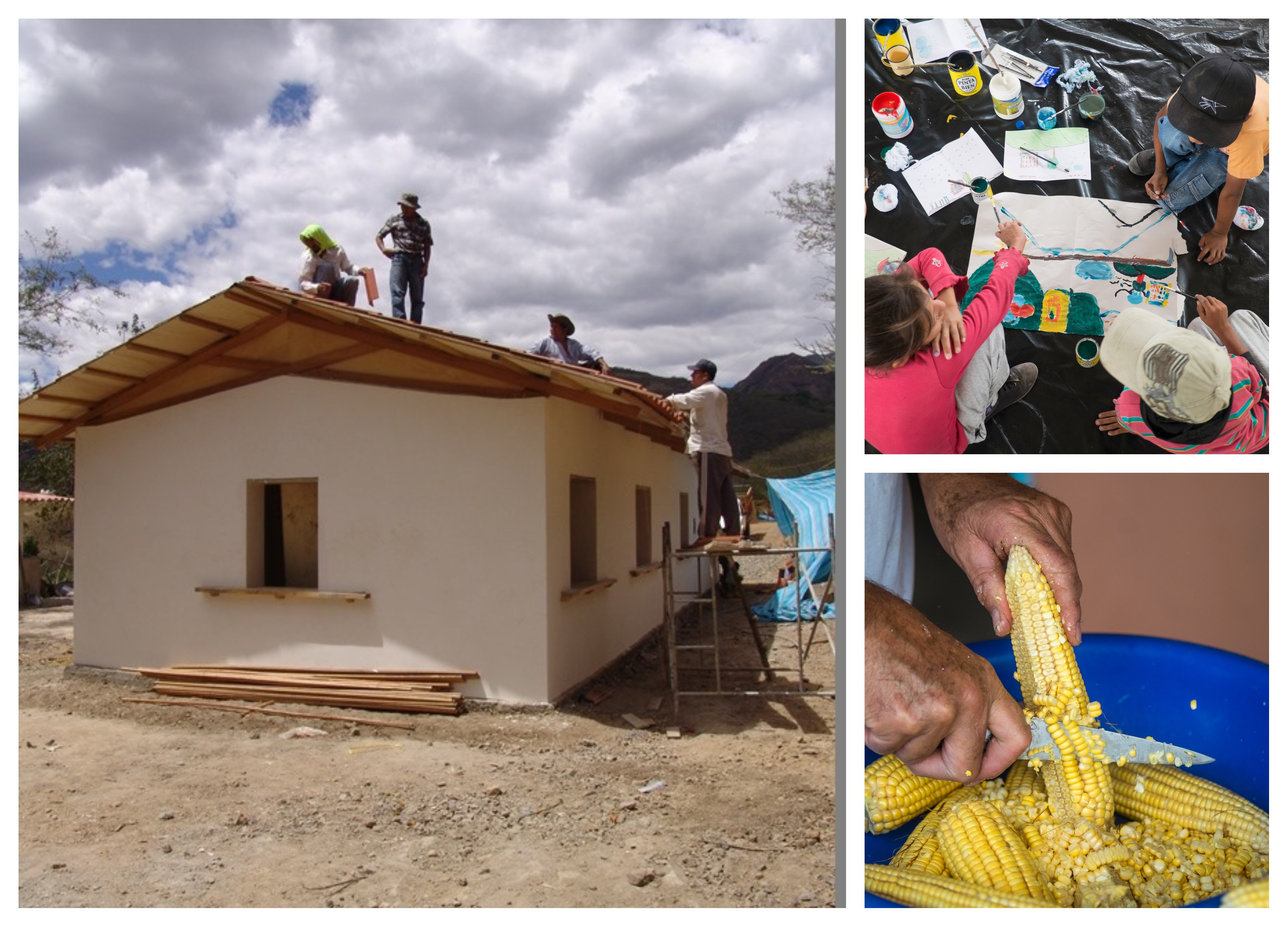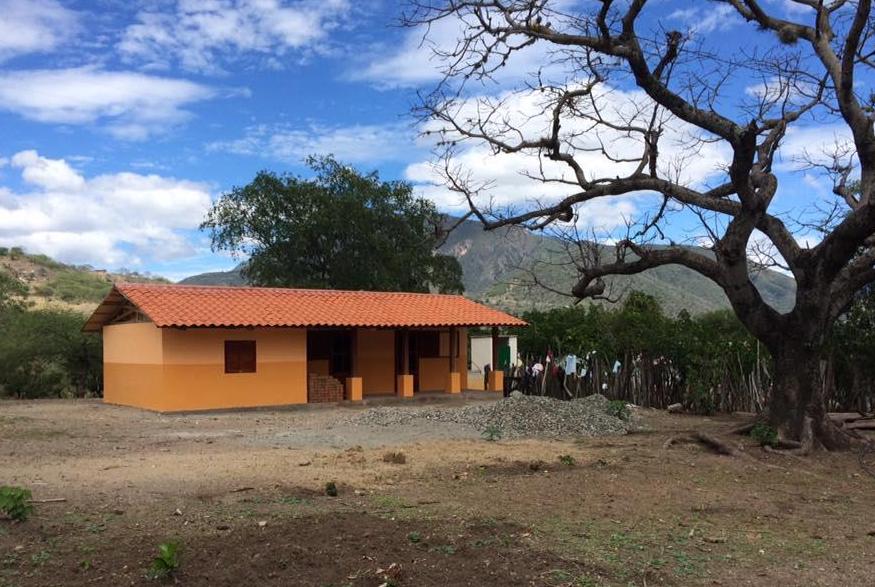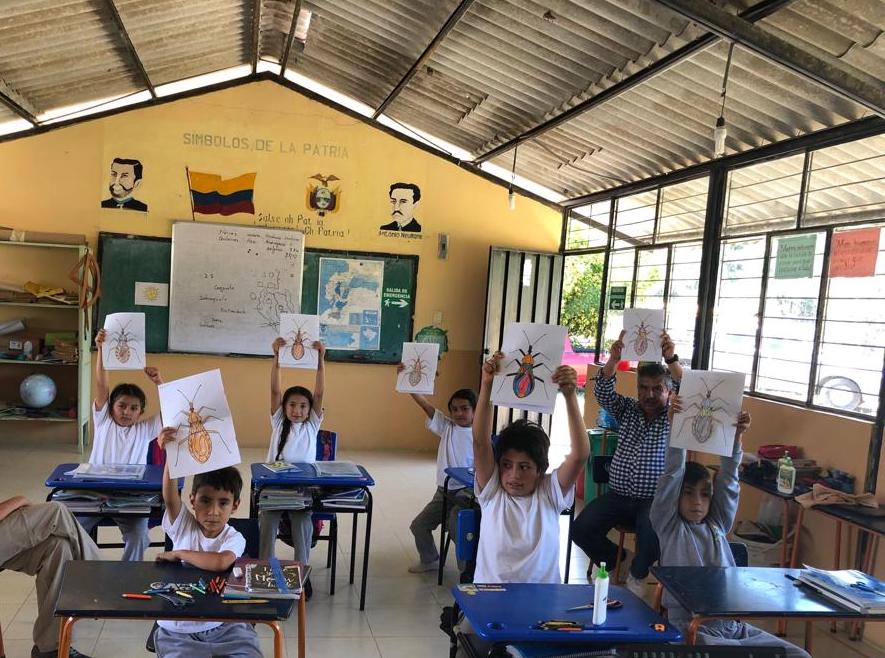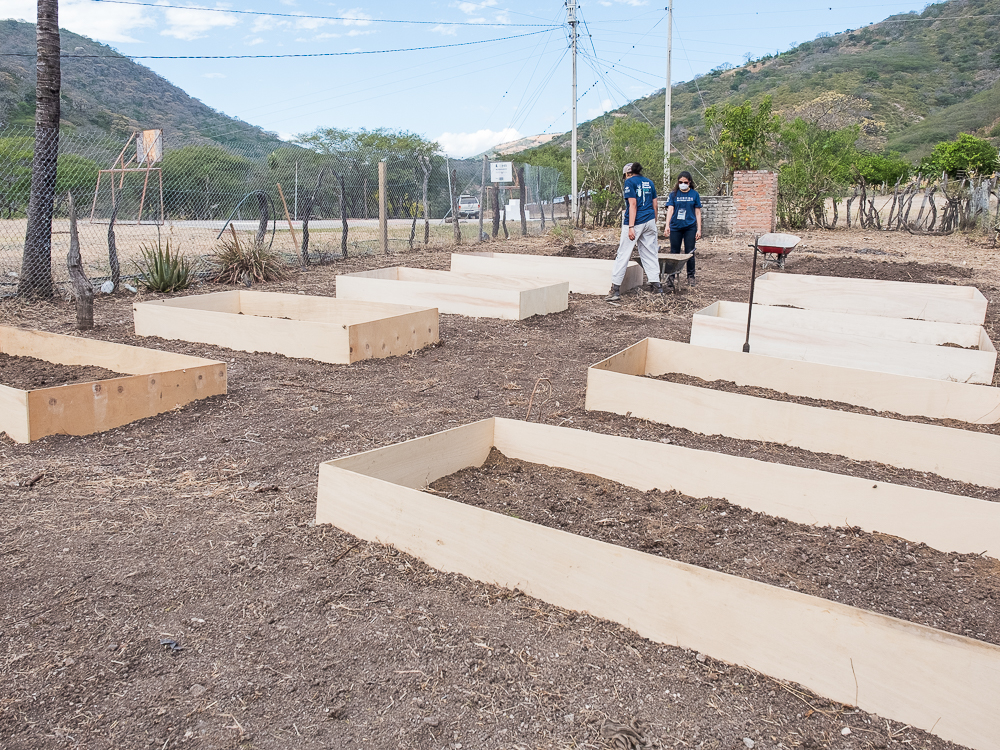By Daniela Grijalva

Our strategy for preventing Chagas disease and building health recognizes local capacities for identifying and solving problems and is dependent upon achieving a shared sense of ownership over all of our projects. We are facilitating lines of action that generate the knowledge, skills, sense of self, and collective-efficacy required at the community level to create and sustain living environments that deter Chagas disease and support well-being. We have developed the following components under the initiative:
• Improved housing,
• Promotion of healthy living practices, and
• Sustainable increases in income generation.
These key elements of a healthy living environment, generated as the result of more than 18 years of collaborative research conducted in partnership with a diverse group of stakeholders, including community members, researchers, and governmental and non-governmental organizations. The three main components we have identified are at the core of our model for sustainable Chagas disease prevention and control. Under these guiding principles, our Healthy Living Initiative has worked together in collaboration with community members of the communities Bellamaría, Chaquizca, and Guara in Loja Province, Ecuador to implement sustainable projects that have improved the well-being of those we serve.
1.Improved Housing

Our primary function is to facilitate improved housing in partnership with communities in southern Ecuador. Chagas disease, triatomine bugs, and the presence of trypansoma cruzi parasites are all linked to substandard housing. Building strong, gap-free, healthy homes is the only long-term solution that can prevent the spread of Chagas disease.
Recent activities
- Conducted baseline studies to determine triatomine infestation rates, homes decay status, and knowledge, attitudes and practices in relation to homes and health
- Architectural team members consulted with community members to develop designs for an ‘anti-bug’ prototype building structures that integrated traditional building materials and styles
- Collaborated with community members to construct seven ‘anti-bug’ building structures that employ replicable, affordable, simple and culturally-sensitive building technology
- Facilitated social organization to fund, build, and improve water systems in Guara, Chaquizca, and Bellamaria
2.Promotion of healthy living practices

Health is inextricably tied to a host of biological, social, cultural, economic and political factors. When we fail to generate opportunities for everyone to pursue good health, we are contributing to a cycle of disease and poverty that undermines the struggle of people living in poverty to improve the conditions of their lives. For these reasons, our strategy for building health depends upon developing a critical understanding of local contexts through direct engagement with the communities we serve. We work together with local health workers, community leaders and those responsible for promoting health in their own families to integrate local and external knowledge to achieve the best possible individual and community health.
Our collective efforts range from medical screenings for acute health challenges to the development of educational programs designed to affirm cultural and social norms that support good health and transform those norms that undermine it. For the Healthy Living Initiative, success means the prevention of Chagas transmission, a significant improvement in the health conditions of community members, and a tangible decrease to vulnerability to cycles of poverty and disease for the members of our partner communities.
Recent Activities:
- Education, information and knowledge sharing efforts that help to establish the relationship between health and living environments in this specific context
- Facilitation of mobile clinics
- Dialogues with local populations to establish alternative health-promoting practices for raising animals, crop storage and home maintenance
- Conducted research into pre-existing, community-based living practices for warding off Chagas disease transmission
- Collaborated with the Ecuadorian Ministry of Health to fumigate houses in partner communities
- Formed health committee for the Social Security System
3.Sustainable increase in income generation

The work our initiative has undertaken in the communities we serve has provided key insight into lives rendered challenging by poverty and social marginalization. People challenged by poverty in communities in southern Ecuador, and around the world, face a shortage of opportunities to generate income. Barriers to financial stability work in conjunction with a lack of housing, health, water, and affordable and accessible education infrastructure to increase vulnerability to infectious and chronic disease.
Our time spent with these people, however, has most importantly revealed an incredible resilience and motivation among community members to improve the quality of their lives. Lines of action that contribute to economic development are central to our Chagas disease prevention strategy. Together with our partner communities, we are exploring a range of avenues for expanding income generating opportunities, each driven by the belief that people burdened by poverty deserve support as they activate their own agency to improve the condition of their lives. Through the establishment of sustainable increases in income generation, many community members have been able to gain financial independence, which also helps to mitigate problems of gender-based discrimination.
Recent activities
- Facilitated construction training certificate program attended by 22 community members
- Provided organizational development support for Los Ceibos Artisan group through marketing and planning workshops, as well as an exploration of new markets
- Ongoing collaborations with community members to explore agricultural techniques that help sustain food sovereignty and safety
- Conducted agricultural production training focusing on increasing income derived from farming activities
- Investigated ecotourism potential
- Launched assets-based community development initiative


